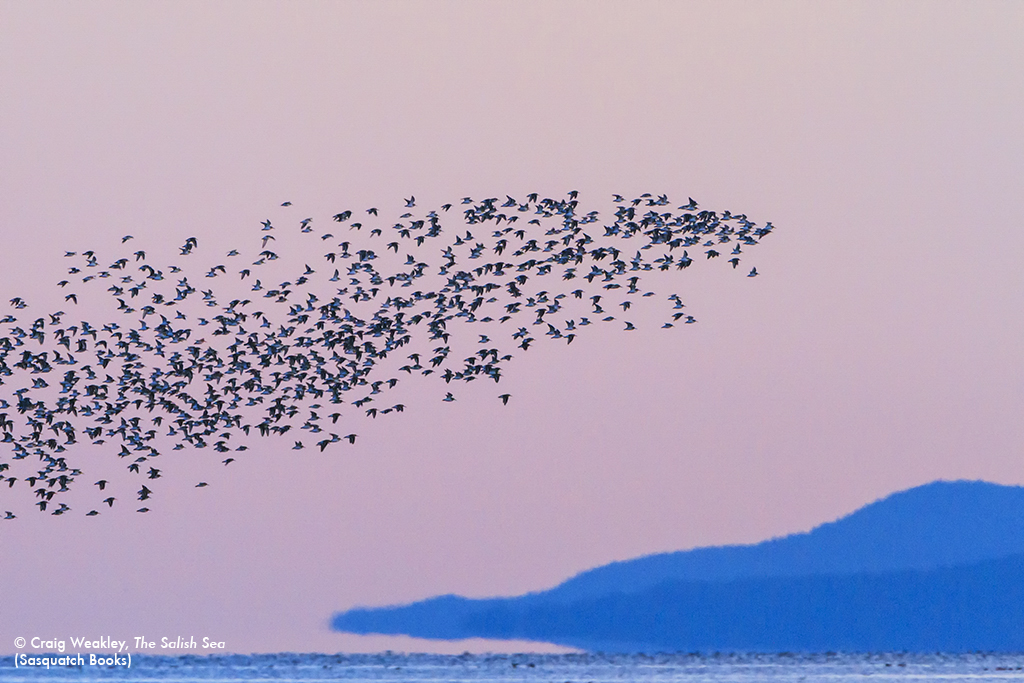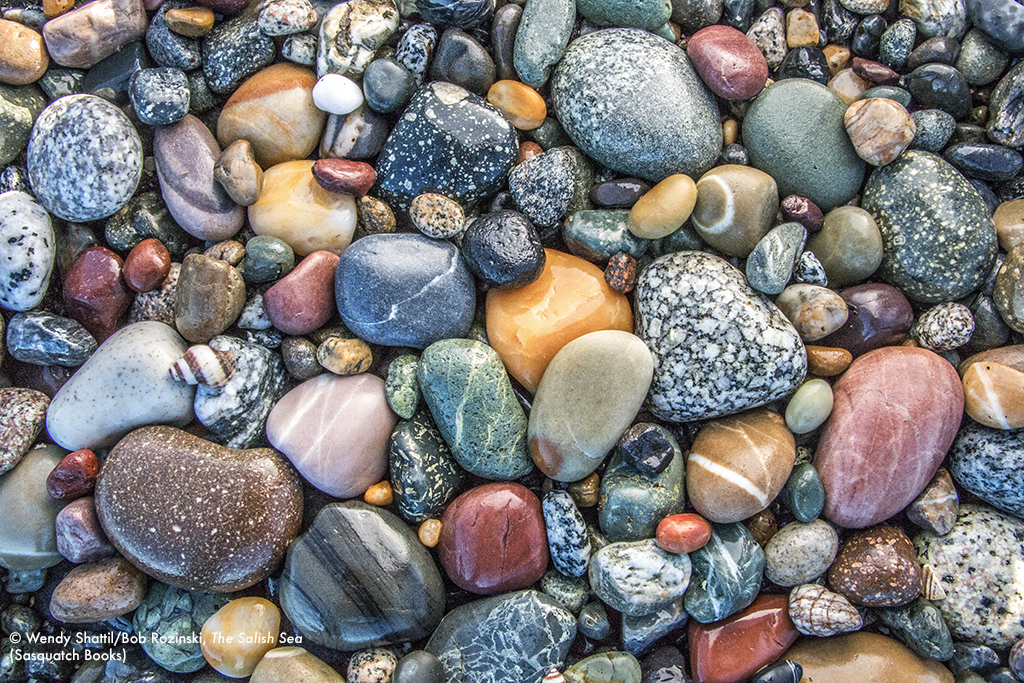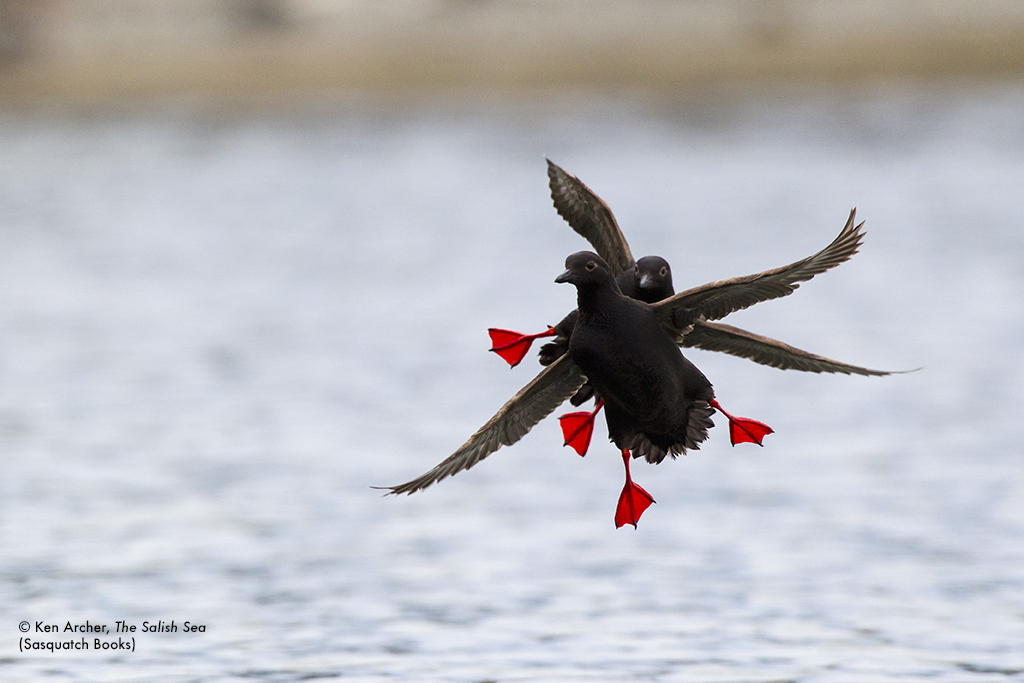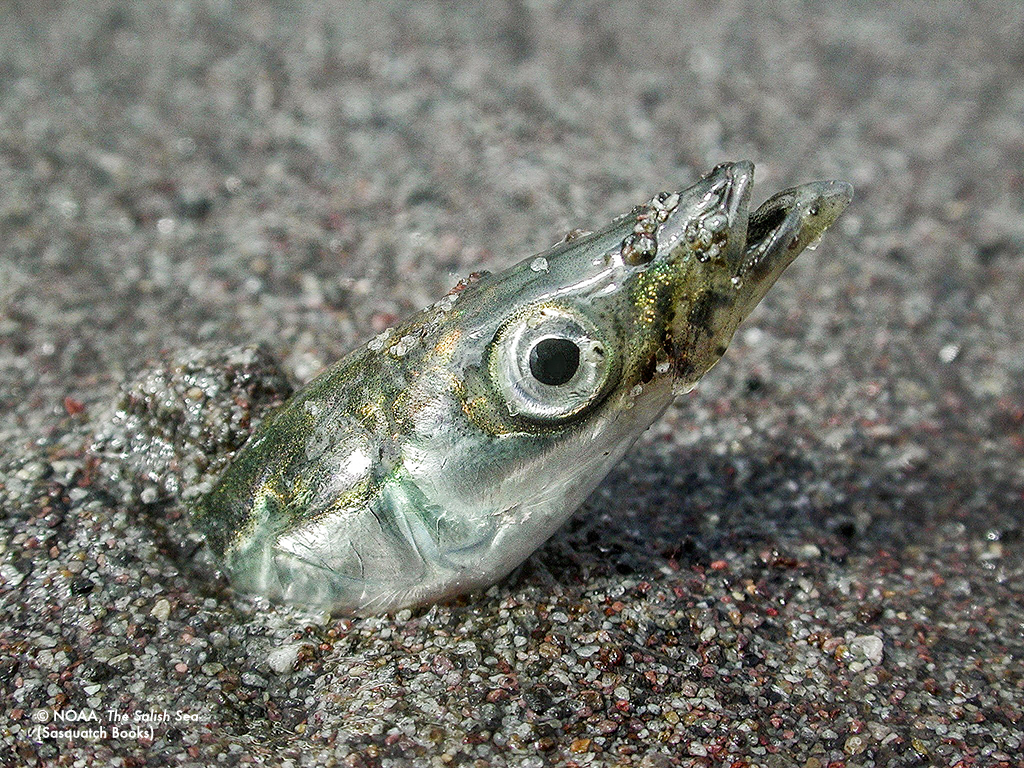Order at your local bookstore or on Amazon.
We want Explore the Salish Sea: A Nature Guide for Kids to be available to every 5th and 6th grader in the Salish Sea regardless of ability to pay. We're piloting that effort by providing the books to students at Camp Orkila on Orcas Island. To buy a book for a student, support SeaDoc on GiveOrcas.
About the book
The SeaDoc Society has published a book for the next generation. Filled with beautiful photography and engaging stories, Explore the Salish Sea: A Nature Guide for Kids inspires children to explore the unique marine ecosystem that encompasses the coastal waters from Seattle's Puget Sound up to the Strait of Juan de Fuca and the Georgia Strait of British Columbia.
Discover the Salish Sea and learn about its vibrant ecosystem in this engaging non-fiction narrative that inspires outdoor exploration. Filled with full-color photography, this book covers wildlife habitats, geodiversity, intertidal and subtidal sea life, and highlights what is unique to this Pacific Northwest ecosystem. The book was written by SeaDoc Science Director Joe Gaydos and board member Audrey Benedict.
Early praise for Explore the Salish Sea
Explore the Salish Sea, a new nature guide for kids, is a lavishly illustrated exploration of the waters that connect Washington and British Columbia. The book encourages kids to get out and explore, and to think about ways to help take care of the Salish Sea every day. More than gee-whiz facts, the book is aligned with Washington state core science-learning standards to step kids through the fundamentals of the ecology of the Salish Sea.
Explore The Salish Sea is a nature guide for kids. It’s about the unique marine ecosystem that connects Puget Sound with Canada. It’s aimed at fifth and sixth graders and based on a previous edition made for adults.
Port Townsend Marine Science Center
“Joe’s new book is beautiful and, while it was primarily designed for fifth graders, it teaches us all that we can -- and must -- make a difference for the health of the Salish Sea and the living things that depend on it,” said Janine Boire, Executive Director. "He is able to connect the science for people in ways that move us to action."
Pacific Northwest Booksellers Association
#2 on the Early and Middle Grade category
#1 in the Children's Environmental & Ecology category
Catch Joe and Audrey at a local book event:
JOSEPH K. GAYDOS is chief scientist for the SeaDoc Society, a marine science and conservation program focused on the Salish Sea. He is a licensed wildlife veterinarian and has a PhD in wildlife health. For over a decade he has been studying the fish and wildlife of the Salish Sea.
AUDREY DELELLA BENEDICT is a biologist, writer, and passionate advocate for the conservation of the global ocean and Arctic and alpine environments the world over. She is founder and director of Cloud Ridge Naturalists, a nonprofit natural history educational organization now in its fourth decade. She is currently a member of the board of the SeaDoc Society and served for nearly a decade as a trustee for the Colorado chapter of The Nature Conservancy, from which she received the prestigious One Conservancy Award in 2003 for her work in Ecuador. Audrey splits her time between her home at 9,000 feet along the Colorado Front Range and her off-grid cottage on San Juan's Frost Island.
The Salish Sea: Jewel of the Pacific Northwest (2015)
Buy the book at your local bookstore or on Amazon.
SeaDoc's first book, The Salish Sea: Jewel of the Pacific Northwest by Audrey DeLella Benedict and Joseph K. Gaydos (Sasquatch Books; $24.95; March 2015), combines a scientist's inquiring mind, dramatic color photographs, and a lively narrative of compelling stories. This is the first book of its kind to describe the Salish Sea, whose name was not even officially recognized until 2008. One of the world’s largest inland seas, the Salish Sea contains 6,535 square miles of sea surface area and 4,642 miles of coastline. Fashioned by the violent volcanism of the Pacific Rim of Fire, plate tectonics, and the sculptural magic wrought by Ice Age glaciers, the Salish Sea is a unique ecosystem home to thousands of different species of mammals, birds, fish, reptiles, and macro-invertebrates=
Amongst breathtaking color photography, The Salish Sea takes a look at the region’s geology, fauna, and history, and ends with hope for the protection of its future. The reader is left with a sense of wonder for this intricate marine ecosystem and the life that it sustains.











